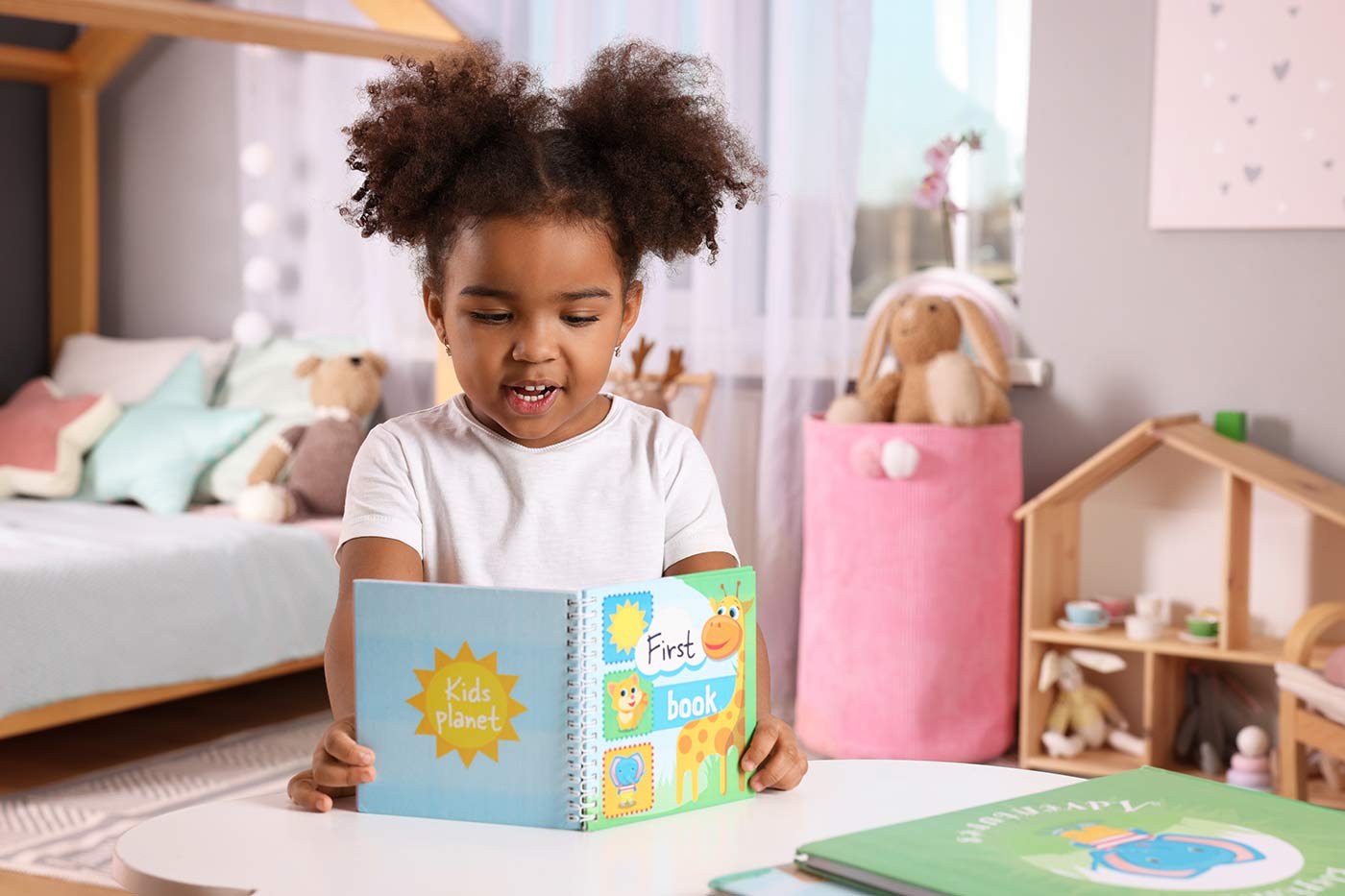Why We Need to Read with Kids Every Day
If reading with your children isn’t a regular habit, try to make it one. Here are compelling reasons why we need to read with kids every day.
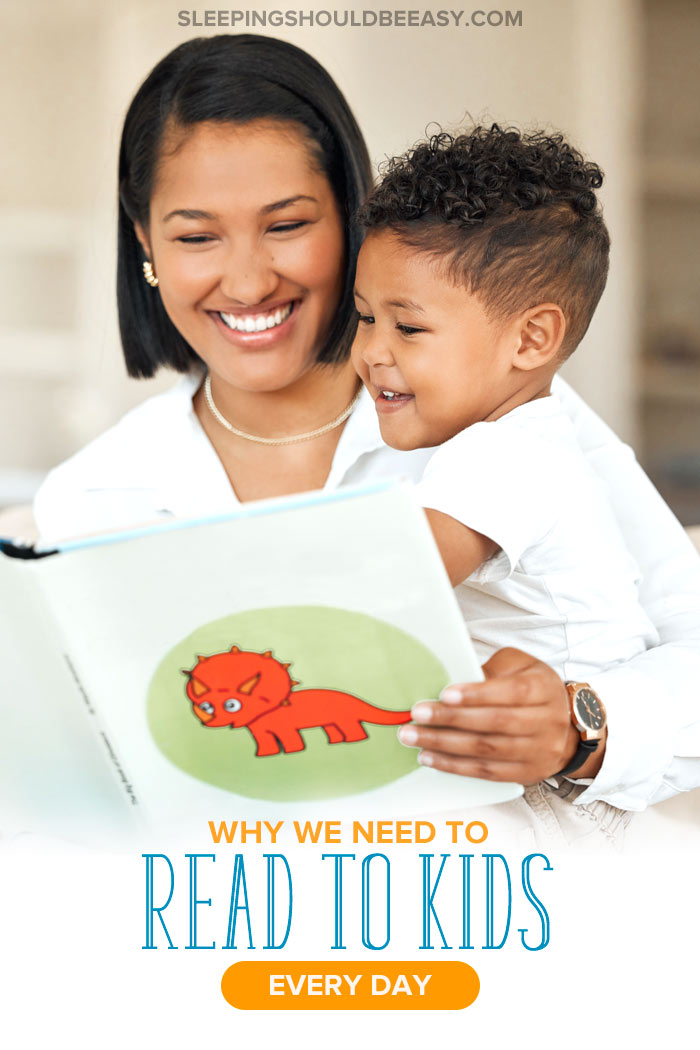 Reading with young children is the kind of advice everyone—experts, teachers, pediatricians—recommends, but can still fall off our radar.
Reading with young children is the kind of advice everyone—experts, teachers, pediatricians—recommends, but can still fall off our radar.
And we have plenty of excuses, don’t we? We’re too busy to squeeze reading into our day. Or we do read with our kids, but not regularly. Maybe we don’t have enough books in the house or think the kids are too old to be read to.
We might not read ourselves, or we meet resistance when we suggest reading with our kids.
Still, after volunteering in my kids’ classrooms, I can see a wide range of reading abilities among the children. While some are due to learning disabilities, for many, it’s simply because of a lack of reading at home.
Table of Contents
Why we need to read with kids every day
Unfortunately, reading can also be a hot topic between you two, especially when your child already struggles in school. He might see it as something to dread, or even a punishment or point of contention. This only makes him feel less inclined to read for pleasure.
But there’s a reason experts encourage us to read with our kids every day. This one simple act can have a huge impact on their learning and success. Let’s dive into these benefits:
1. Understanding complex themes
Is your child struggling with an issue? Maybe she has separation anxiety or is biting other classmates. She could be welcoming a new baby brother or worried about going to school.
Besides speaking with her about these issues, you can also read books to help her get through them. Reading gives her ways to cope and shows her how other characters deal with the same issues. She’ll know she’s not alone, and that others have experienced the same thing.
Complex themes can even extend to topics like how to be a kind friend or ways we can make the world a better place. And sometimes they shed light on our communities, such as the holidays we celebrate or how we need to embrace diversity and people of color.
With books, you can dive into these issues in depth without making her feel like the subject of conversation. She won’t feel as attacked or scrutinized learning about complex topics from the characters’ experiences.
Free resource: Not sure which great books to start with? Join my newsletter and grab the Read Aloud Book List—at no cost to you. You’ll get hundreds of favorite selections to read aloud with your kids. Get it below:
2. Better performance at school
No doubt, avid young readers perform better at school than those who don’t. One of the biggest reasons is the sheer number of words a child knows. After all, a student has to understand his teacher and the lessons to succeed, as well as articulate his thoughts and advocate for himself.
Here’s an example: Let’s say you spoke a little bit of French while a friend of yours can speak with perfect fluency. You can imagine who will have an easier time navigating through France between the two of you.
The same is true with young kids and their language skills.
A child who learns more new words can understand the material and communicate his thoughts better than someone who doesn’t. Reading also introduces words you and I don’t always use in conversations (for instance, I can’t remember the last time I said, “exclaimed”).
So, what exactly is enough? Just 20 minutes a day is all it takes. That can be 20 minutes straight, or different reading sessions throughout the day. Want to see just how much 20 minutes can help? Take a look at the graph below:
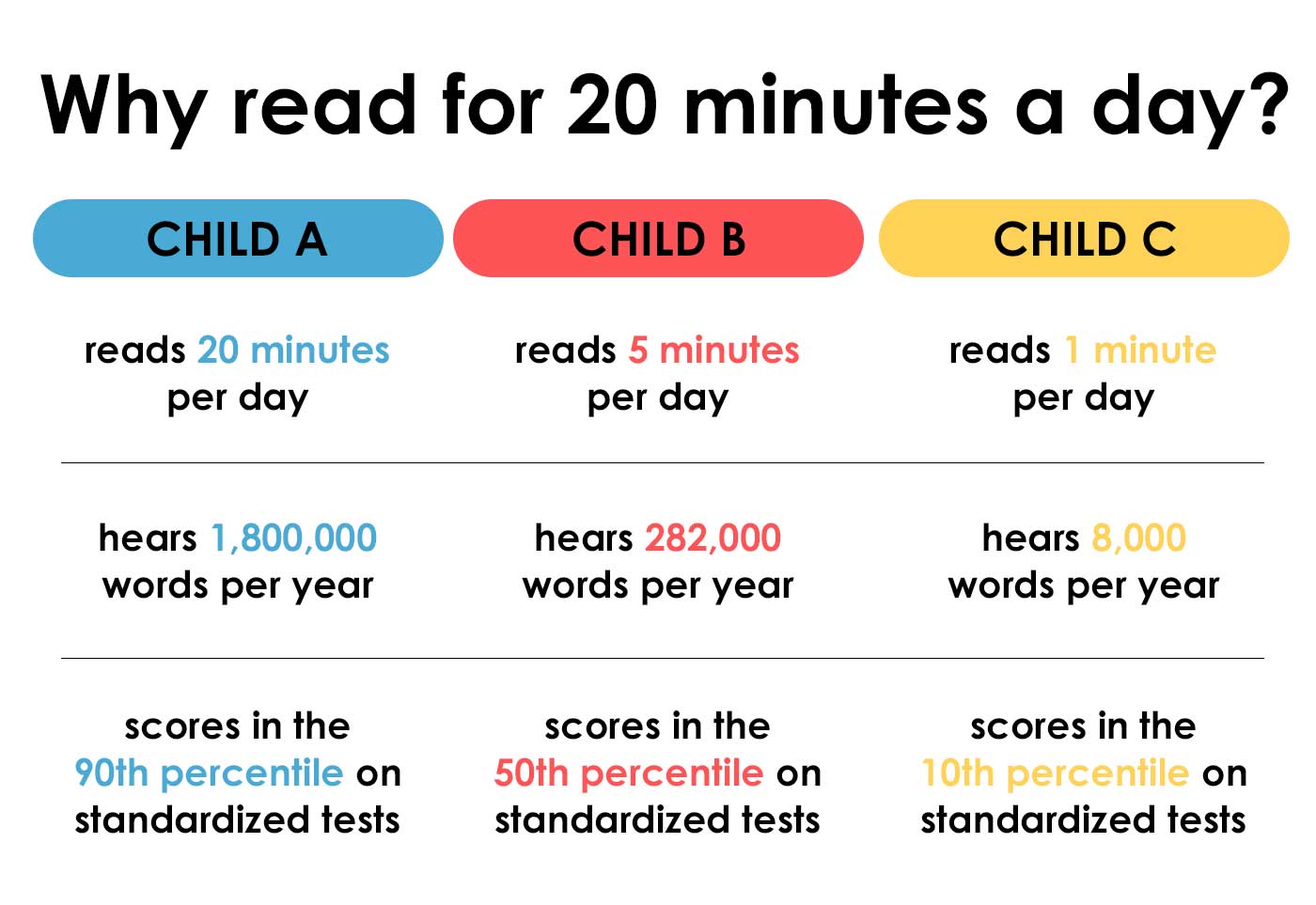
3. Introduces new experiences and information
The more your child reads, the more she knows. Books are, after all, an important source of information, for both kids and adults. When I want to learn more about a topic, I borrow a book about it. And of course, schools and libraries have books with the sole purpose of providing information.
From board books to chapter books, that habit can start now. Your child can learn how snowflakes form or which animal runs the fastest or discover our solar system or the way plants grow. If she doesn’t travel much, she can still “visit” different countries and cultures.
Imagine knowing all that exciting information just from books!
Read these multicultural children’s picture books.

4. A bonding experience
One of the biggest mistakes we do is making reading a chore during childhood. It’s tempting, especially when we feel pressured or guilty if our kids don’t read enough.
But reading can and should be a bonding experience between the two of you—the proximity, hearing the same story, the focus on your child. And sometimes the story itself can inspire awe and entertainment that you now share.
This is why it’s important not to regard reading as a chore, or to nag her to read. Make it an enjoyable experience so it becomes a treat, not a drag. Even if she can already read, the act of reading aloud together makes reading that much more fun.
5. Fosters a love of reading
Reading begets a love of reading. This is the ultimate goal: raising your child with a love of learning, where reading isn’t a means to an end, but the experience she treasures.
What can at first be a chore can turn into a lifelong hobby. Think about exercise fans who, perhaps at first, dreaded that early morning run or that trip to the gym. But over time, they benefited from this habit and now find joy in working out. The same is true for kids and reading.
Reading is also a fantastic way to encourage her passions. Her interest in dinosaurs can mean borrowing all sorts of books about them, from non-fiction to short stories.
Books can be just as entertaining as other ways she spends her time. Raising a reader now can cement it further when she’s an adult.
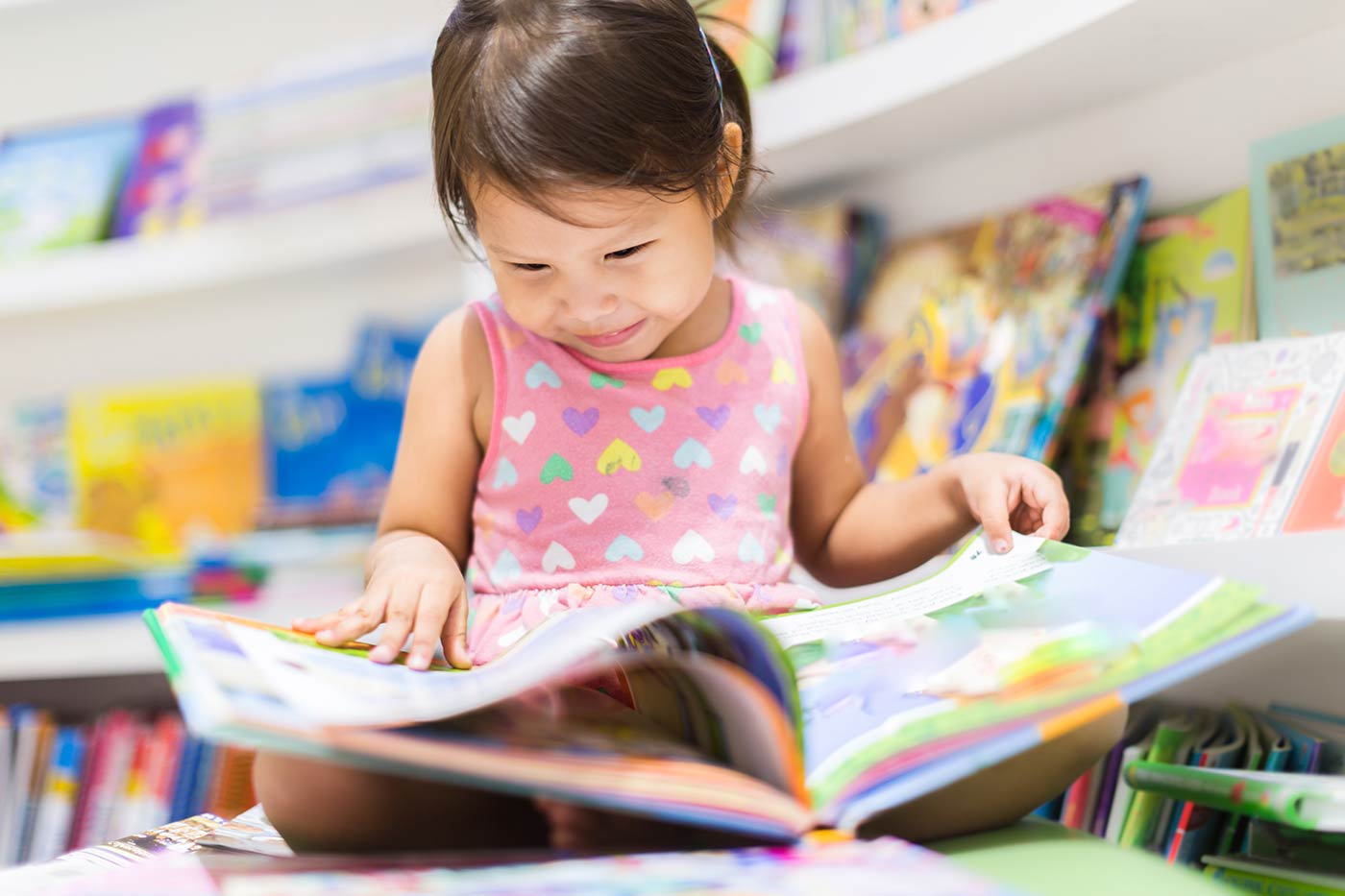
When should you start reading?
Some parents might feel silly reading books aloud to their babies and toddlers. After all, babies don’t understand the story, much less the words. They also don’t seem to pay attention, making it slightly strange to point to books and read aloud.
But start reading to your baby from day one! Exposure to reading is one of the best ways to nurture his listening and reading skills and introduce him to your voice and tone.
You’re also modeling fluent, expressive reading. Compare how you sound when you read aloud versus when you’re speaking to others. Reading aloud from books draws out the intonation and expression you may not find in regular conversation.
Plus, reading to your baby starts the habit from day one. While it’s never too late to read, starting when he’s young ingrains that habit from the get-go.
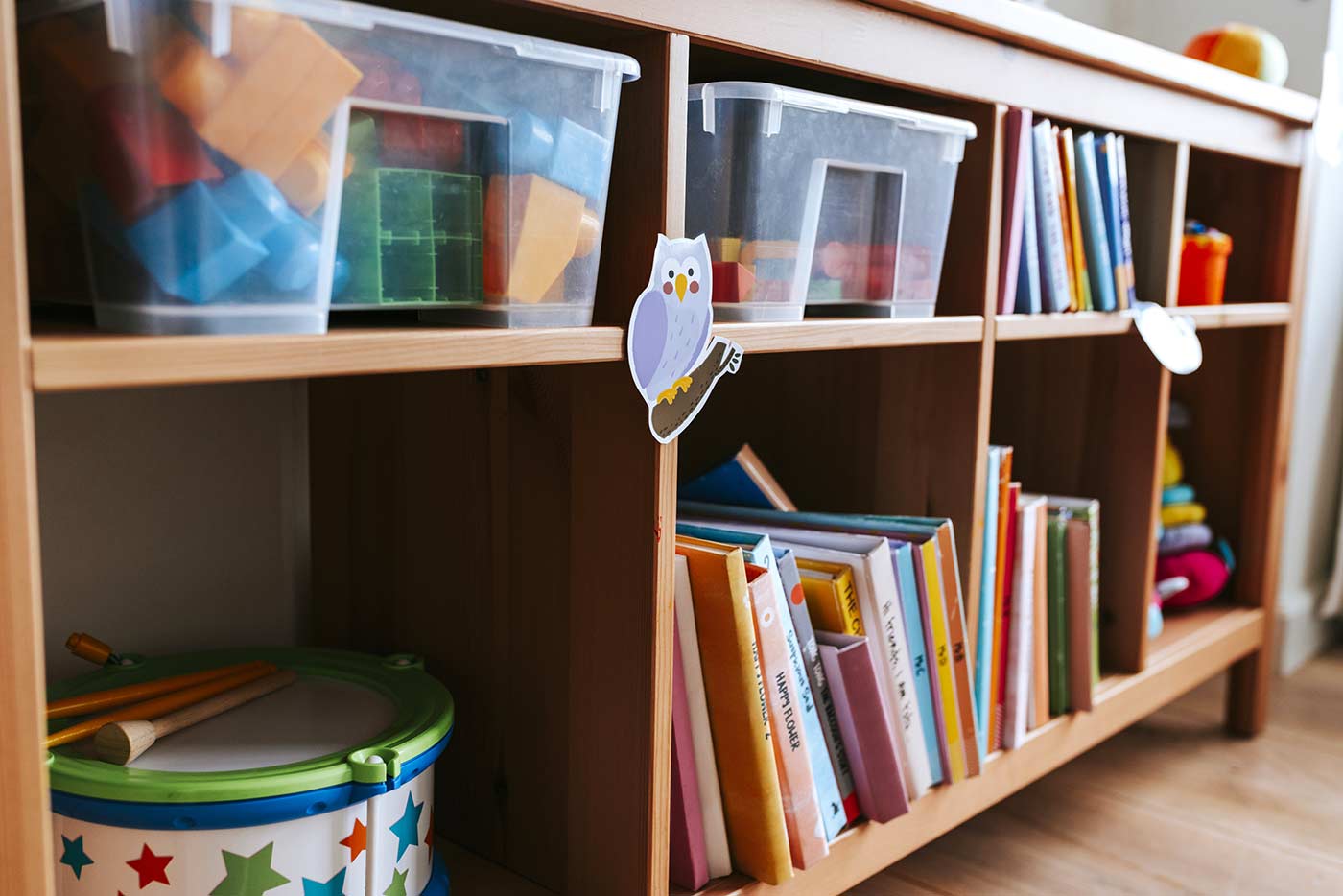
Best practices when reading with kids
With so many long term benefits of reading, how can you make the most out of the experience? Below are best practices for making reading with your child positive and effective:
1. Prioritize daily reading time
It all boils down to the importance of reading to you. We’ll always have a hundred excuses, but if you make reading a priority, the other tasks on your to-do list will fall second.
In fact, make reading part of your bedtime routine. You’re less likely to forget to read if you make it part of your routine. Just as he sleeps every night, so too should he read at a regular part of the day. Start your routine 20 minutes earlier if need be to make time for bedtime stories.
2. Borrow books from the library
Make regular trips to the library and borrow a lot of books each time. I go every week and borrow at least eight books. A friend of mine goes every three weeks (or whenever the books are due) and borrows upward of 30 books each time. Litter your house with books!
For a special treat, give a book as a gift with each birthday or holiday. Make books a treat by giving one with each birthday or holiday. He can see them as a special item and can feel excited to read his new book.
3. Read books you like to read aloud
Not all children’s books are great or are for every parent. If you find a book you can’t stand reading, don’t force it (unless he really loves the book!). You can feel more motivated reading books you enjoy than those you don’t.
Include time to read for yourself. It’s much harder to convince him to read when he doesn’t see you doing it as well. And try to read physical books instead of on your phone or tablet, which he might not know is a book.
4. Praise him for being a reader
If you see him reading a book on his own, praise him afterward for being a fantastic reader. And label him as a reader—this is one label you want to instill as a personal trait. (Learn which labels you shouldn’t be using.)
You can ask him to read to you, too. Find an age-appropriate book and take turns reading if he can. He’ll likely love reading along and paying attention.
5. Admit your shortcomings
None of us are perfect—we all make mistakes in this parenting journey. If you haven’t been diligent about reading, come clean, especially if he questions why he should read when you don’t.
Explain that you haven’t been developing the habit of reading, but you’ve learned and will now follow through. He may resist at first, but he’ll likely appreciate your honesty and understand the change.
Conclusion
Reading is one of those things you can do—today—that can have a lasting impact on your child. He can understand complex themes and learn new experiences and information that he might not otherwise. He can do better in school, especially with an advanced vocabulary to help him along.
Reading can nurture a strong bond between the two of you, and most importantly, reading can foster your child’s love and appreciation for it. It almost seems silly not to spend at least 20 minutes a day reading with him.
But life does happen, and sometimes we don’t always get to read regularly with our kids. Try to change that moving forward. Start small, even with just one good book a day. You’ll be amazed at what a difference it can make in your child.
Get more tips:
- How to Raise a Bright Child
- 4 Reasons Kids Need Downtime
- What to Do When Your Child Doesn’t Want to Go to School
- 6 Techniques to Teach Your Child to Love Math
Don’t forget: Join my newsletter and grab your Read Aloud Book List below:


